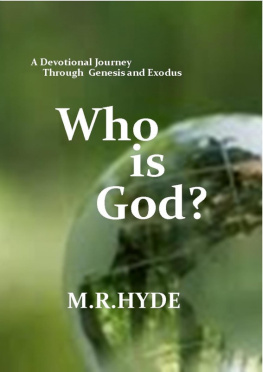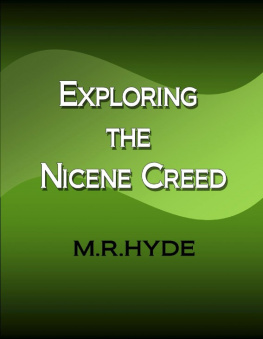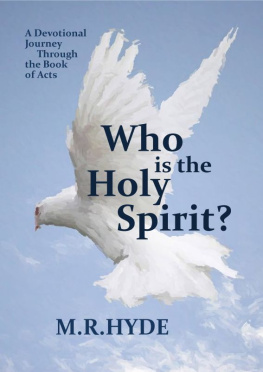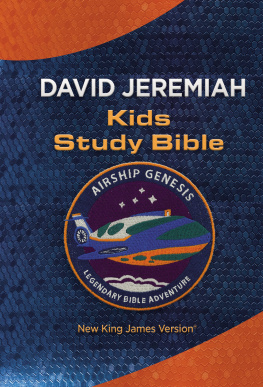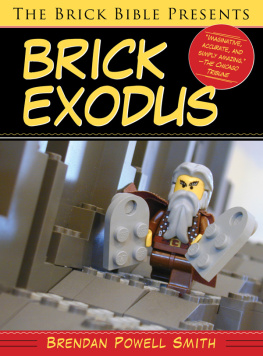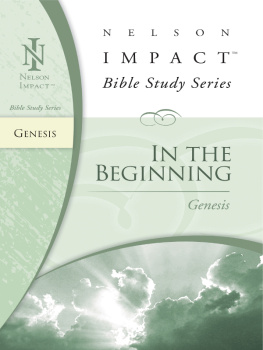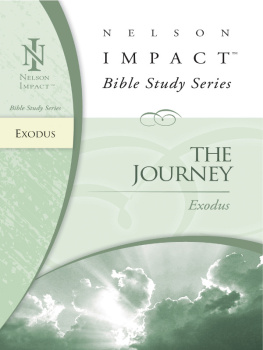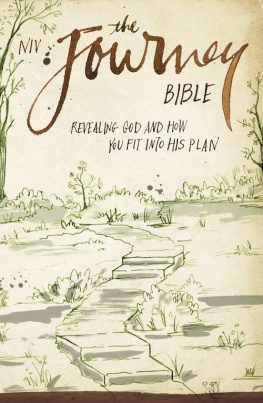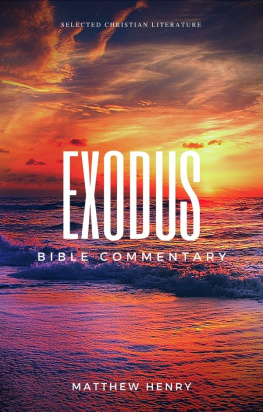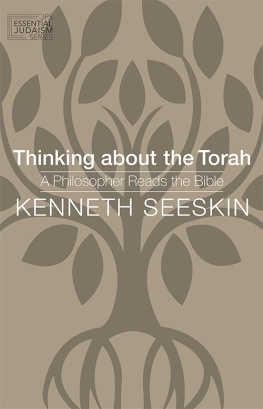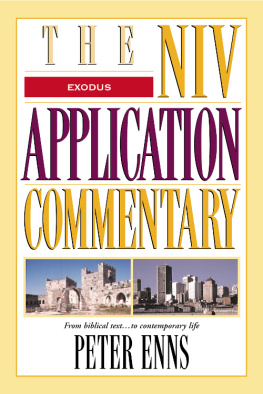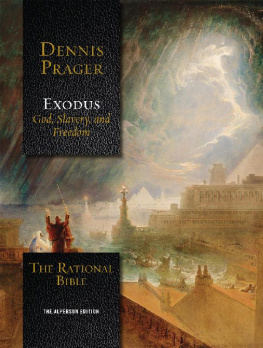Who is God?
A Devotional Journey Through Genesisand Exodus
Published by M.R. Hyde atSmashwords
Copyright 2014 M.R. Hyde
Other Books by M.R. Hyde
Non-Fiction
Exploring the NiceneCreed
Exploring the LordsPrayer
Who is Jesus? A DevotionalJourney Through the Gospel of Matthew
6 Verses for Preaching: APrimer for New Preachers
Who is the Holy Spirit? ADevotional Journey Through the Book of Acts
Blog: http://thewordwwtw.blogspot.com/
Fiction
She: Stories of aWoman
Mercy and Truth: ACollection of Short Stories
Wife of Lappidoth: AMountain Tale
Tall Pauley
Blog: http://thewordwwtw.blogspot.com/
Smashwords Edition, LicenseNotes
This ebook is licensed for yourpersonal enjoyment only. This ebook may not be re-sold or givenaway to other people. If you would like to share this book withanother person, please purchase an additional copy for eachrecipient. If you are reading this book and did not purchase it, orit was not purchased for your use only, then please go toSmashwords.com or your favorite ebook retailer and purchase yourown copy.
Thank you for respecting the hard workof this author.
Scripture taken from the HOLY BIBLE,NEW INTERNATIONAL VERSION. Copyright 1973, 1978, 1984 Biblica.Used by permission of Zondervan. All rights reserved. The "NIV" and"New International Version" trademarks are registered in the UnitedStates Patent and Trademark Office by Biblica. Use of eithertrademark requires the permission of Biblica.
How to Use thisBook
This book is divided into smallsections of the Genesis and Exodus designed for personal or smallgroup interaction. It will be important for you to have a Biblewith you as you read this. The English version used in this journeyis the New International Version, but other versions areappropriate as well. If you would like a digital Bible at yourfingertips, there are many available online and many of which nowhave audible formats. Find one that fits and works best foryou.
Recommended uses include thefollowing:
Personal Daily Devotional
Personal Weekly Devotional
Small Group Weekly DiscussionStarters
Jesus said,
Blessed are those who hungerand thirst for righteousness,
for they will befilled.
Matthew 5:6
Greetings, reader! This series isdesigned to walk you through selected passages in the Old Testamenton a quest to know God. You can also journey through Matthew toknow who is Jesus is and through Acts to know of the Holy Spirit.This volume is intended to be the first of three in attempting tounderstand the Trinity. While the term Trinity does not show upin the Biblical text, as Christians we do believe in one God whoreveals himself in three personsFather, Son and Holy Spirit. It isa difficult idea logically, but an idea that is representedthroughout the Bible as a whole. That is why we are wrestling withthis mysterious concept through the reading and study of GodsWord. So, we begin.
Do you believe in God? Is he abenevolent or wrathful God? Is he involved in the world or distantand uncaring? How do we know what God thinks? Can we know? Can wereally discern and understand the path for our life? Can we knowthe will of God for ourselves, for our church, for our world? Isour life just left up to fate? Do things just happen to us withoutany of our own will or way being involved? Is God just auniverse-sized puppet-master pulling the strings this way andthat?
When we look at and try to comprehenddisasters of biblical proportions, and the phenomenal amount ofhuman life lost in massive earthquakes, fires and storms, what doesthat tell us about the character of God? If God is a loving God,why does he permit these kinds of disasters and things like theBlack Plague, HIV/AIDS, Hitler's regime, slavery, etc? Who tells uswhat to believe about God? Is what we believe accurate, true orcomplete? How do we tell other people about God if we ourselves donot know either him or know anything about him?
Have we had enough questions yet? Weare plumbing the depths of the human psyche. When things likepersonal loss, grave illness and human suffering stare us in theface, these kinds of questions distract our driving, wake us in themiddle of the night, sometimes make us angry, depressed or cause usto live with feelings of hopelessness.
I would like to invite you along on ajourney. It's a journey to try to discover some of the answers tothe questions we have raised. I would like to point our inquiry toa specific direction before we start this journey.
As a Christian I believe we can know,experience and have a personal relationship with the one, true,living God. I believe we can walk in a confident faith in the Godof Creation. We can have profound faith not only in God, but alsoin his will and his character.
I believe this because Ibelieve God has revealed his character and his will in at leastfour distinct places: 1) nature, 2) experience/reason/intellect, 3)religious Christian tradition, and 4)revelation. As Christianswe can believe that when all four of these elements are found to bein agreement we can discern and know God himself. Let's look atthese aspects of theology to get us ready for ourjourney.
Nature is made up of many elements:things that we can see and feel and experience, as well as thingswe cannot. Gravity, for instance, is the physical reality that weexperience moment by moment as it sticks us like glue to thesurface of this globe. We cannot see it, nor can we touch it, butit works. Trees grow without our assistance all over the world.Volcanoes erupt, earthquakes happen in the ocean, mountains tower,grass tosses a beautiful blanket over dust to keep it in place. Allof these are wonderful and terrifying realities that can help usunderstand that a Being exists who created everything.
Some scientists have posited a theorythat the world was created from a "big bang"celestial bodiescolliding in the blank universeand out of that fusion came onecell of life from which all creation sprang. While I wish torespect their research and theories, I am a simple person and cometo a simple question. How did such a life-giving cell arrive in themidst of the fusion? No good answer has yet arisen.
In another way of trying tocomprehend the stuff of life, mythologies have been developed.Every culture has their myths of creation. We can read of thewarring and capricious gods in the Roman and Greek traditions. Wecan read the Enuma Elish which relates stories from the ancient Middle Eastwhere gods cast magic spells and create heaven and earth from thesplit cadavers of their enemies. Victor Hamilton has related this:"The study of mythology helps the believer to see how ancient mantried to answer ultimate questions about life and reality when thelight of revelation had not dawned upon him. Interestingly, theanswers provided to those questions by ancient man are not all thatdifferent from the answers provided by modern but unredeemedman." Hamilton makesthe very fine point of contrast with the Judeo-Christian view ofcreation and God as completely counter to many mythical accounts.The Christian understanding of God is that he did not create out ofviolence or jealousy, but he created out of the goodness andgreatness of his nature.
Read Genesis 1-2:3
That, my friends, is the way we beginto understand not only our world and its beauty and power, but alsoGod and his goodness.
Read Genesis 2:4-25
In chapter 2 of Genesis we read asecond version of the same creation story. And what we learn fromboth of these is that God is a creative God, seeking to make goodthings from nothing. This is the general will of God which we canaccept by faith. The ancient and modern persons who live withoutGod may tell you plainly that if God exists at all, his characterand will are destructive and not creative. If not, why then would agood God make bad things happen?
Next page
